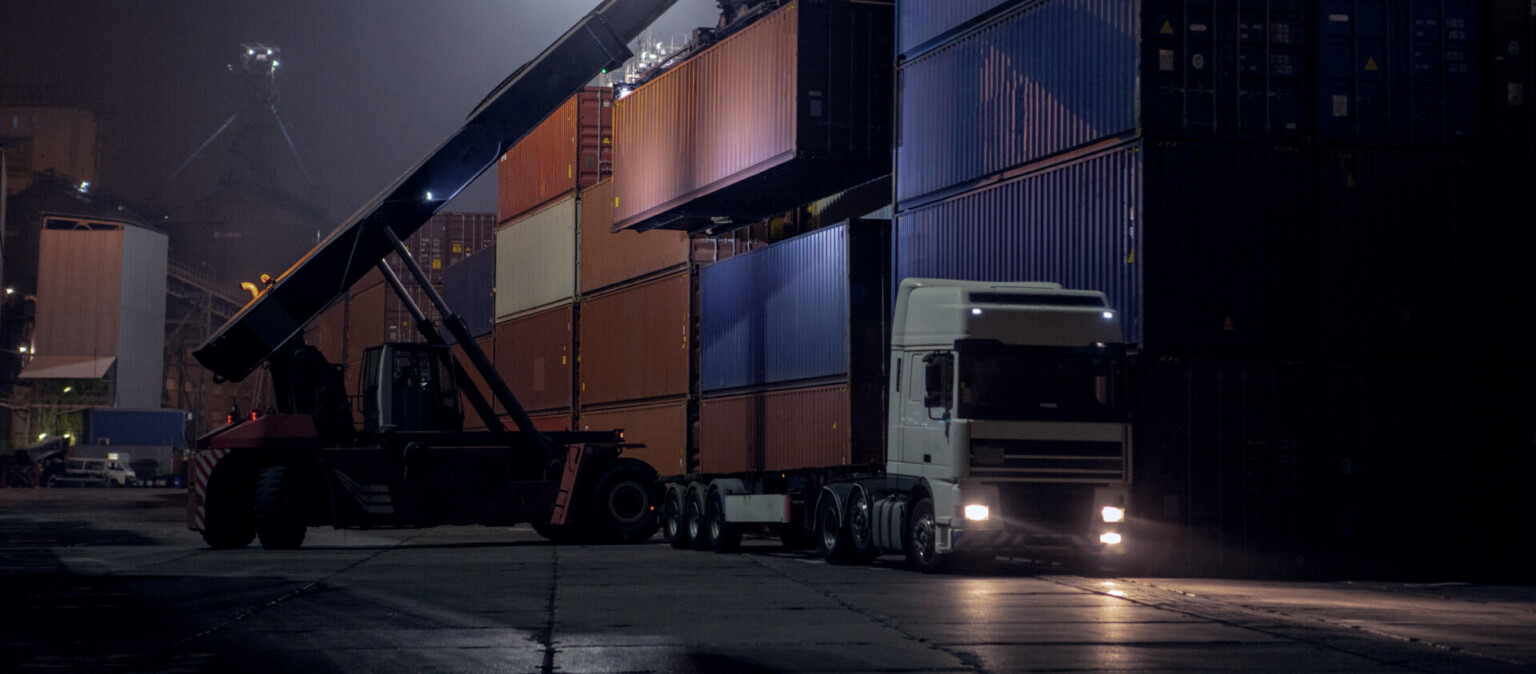Transportation factors into an array of serious criminal activities, including money laundering schemes. Where some criminals attempt to launder illegal money through the purchase of high value cars, others may use transportation networks or a vehicle itself to facilitate illegal activities including insurance fraud, county lines operations, drug dealing and people trafficking.
As transportation-linked criminality evolves, it falls to businesses, such as automobile dealers, rental companies, and logistics companies, along with their compliance teams to mount an effective response – an effort that includes implementing screening solutions to identify risks. In most cases, screening can make a huge difference to stopping transportation-linked crime, not least by surfacing adverse media that exposes the threat certain customers pose.
In the face of legislation such as the UK’s imminent Economic Crime and Corporate Transparency Act, which brings with it the new “failure to prevent fraud” offence, it’s important for automobile and transport businesses to put clear processes in place now.
Let’s take a look at some key examples of transportation-linked criminality, and explore the most effective screening strategies to help firms stay ahead of risk.
The Automobile Industry
The automobile industry generates a significant amount of revenue which makes it an attractive medium through which to disguise and transform dirty money. Beyond that potential to launder money, the car itself may also become an instrument for criminality and be used in thefts and robberies or even violent crimes.
Money Laundering in the Automobile Industry
Although the details of automobile money laundering schemes vary, certain strategies are common. Criminals purchase and then sell cars as a way to transform dirty money quickly, sometimes even inflating or deflating the transaction price to meet a required amount. These transactions often take place across different jurisdictions, with criminals buying a car in one country and selling in another as a way to exploit disparities in AML controls. In some cases, both the criminals and auto dealers may be involved in the laundering scheme, and a vehicle may not even change hands following the transaction.
Luxury cars and brands carry particularly high AML risk since they typically command extremely high prices, often far in excess of jurisdictional reporting thresholds (usually around £10,000). Once purchased, luxury vehicles can then be moved between locations, hidden, or sold on. The automobile industry is not the only target for this type of money laundering – many criminals purchase yachts as part of the same strategy, and move them between ports for resale.
Car Rental Crime Risks
Car rental companies, in particular, need to be aware of the risk of their vehicles being used in crimes, and put appropriate measures in place to stop that happening. Rental companies should be particularly aware of the risk of:
- Organised crime: Many organised criminal gangs target car rental companies in order to obtain cars which can subsequently be used in crimes, including violent crimes, trafficking, and robberies. A gang will typically rent the car under a false name and credentials, commit a crime with the car, and sometimes may then even ship the car off overseas to make it much harder to trace.
- Terrorism: Similarly, cars may be used in violent crimes. Terrorists may, for example, rent a car or vehicle to carry out an attack, rather than purchasing it outright, making it harder for them to be traced.
Stolen Cars and Spare Parts
Criminal activity in the automobile industry can also include the theft and sale of stolen vehicles and the trade of illicit spare parts, which may be stolen or fake. The trade of stolen cars and parts often has strong links to organised crime, and provides gangs with a lucrative source of income which must subsequently be laundered. The second half of 2023 saw a dramatic 39.5% jump in car thefts in the UK, compared to the same period in 2022. Car thefts are often predicate crimes, facilitating smuggling operations, trafficking of drugs and humans, and even violent attacks.
The internet has increased the trade of stolen cars and car parts, offering criminals possibilities to conceal their identities and complete the transfer of funds quickly. The sharp increase in online trade of stolen cars and parts has, in turn, increased scrutiny from regulators and law enforcement agencies.
Automobile Industry Red Flags
Common red flags of automobile industry criminality include:
- Inconsistent, damaged, or altered customer identity information
- Unwillingness or refusal to produce identifying information prior to a purchase or rental
- Buyers that are particularly eager to complete transactions regardless of price
- Buyers making multiple vehicle purchases or rentals in a short space of time
- Discrepancies between a buyer’s income and the price of the car purchased
- Purchases or rentals made on behalf of third parties, such as family members or shell companies
Adverse Media Screening Advantages
Adverse media screening can give automobile firms a significant advantage in the fight against crimes that involve their cars, products and services. In particular, searches can surface stories that link customers to organised crime, and to terrorist activities around the world. Global adverse media screening capabilities are critical in this context given the potential for criminal schemes to involve multiple countries.
Transportation-Linked Crimes
Transport linked criminality extends beyond the automobile industry, and involves a broad variety of methodologies.
County Lines Operations
County lines operations refer to a type of drug trafficking in which criminals exploit vulnerable people to transport their illegal drugs and money between locations. Transport is an integral part of this type of criminal activity since purchased drugs must be physically conveyed to buyers, often over long distances, using vehicles or public transport such as trains. With that in mind, cars are typically chosen for county-lines trafficking because they can be bought or hired relatively cheaply, often using the proceeds of crime.
A 2018 report by the National Crime Agency identified that over 60% of county lines operations use road networks to distribute drugs. Of that number, over 50% of operations involve cars or buses, with 25% of those operations using private cars, and 16% using rental cars. And it is further understood that there has been a increase in rental car involvement since Covid-19, due to changes in tactics which evolved in response to the pandemic.
County lines-related automobile purchases and rentals may differ from other criminal methodologies because criminals may not target particularly high value or high status cars as a means to transport drugs.
County lines operations may also be closely linked to human trafficking. Criminal gangs may recruit vulnerable people from outside a local area, or from a foreign country, to transport drugs on their behalf.
County Lines Red Flags
Common red flag indicators of county lines activity include:
- Inconsistent, damaged, or altered identifying information during car purchases or rentals
- Unwillingness or refusal to produce identifying information prior to car purchase or hire
- Disparities between a buyer’s income and the car purchase they are making
- Customers making multiple car purchases or hires over a short period of time
- Foreign buyers or buyers with no apparent links to the location in which they are purchasing a car
- Customers that are unfamiliar with the area in which they are purchasing a car
- Customers that are reported missing persons or that have reappeared after a long absence without an adequate explanation
Logistics Companies
Certain criminal schemes, including money laundering, involve the targetting or exploitation of logistics and delivery companies. Cargo crime, or freight crime, refers to the theft of cargo from a logistics company, with criminals typically breaking into the delivery vehicle as it is parked, and taking the goods that it is transporting. Alternatively, criminals may steal fuel from the parked delivery vehicle for the purposes of illicit resale.
Criminals may also use logistics and delivery companies to launder money by sending high value items (such as cars and jewellery) across borders, often to jurisdictions with much lower AML requirements. In this context, criminals will typically disguise the truth about the cargo being sent in order to mislead or evade the scrutiny of authorities.
Logistics companies are also often exploited in sanctions evasion strategies, with criminals using them to evade trade restrictions and deliver prohibited items. Electronics components, for example, present a particularly high sanctions risk because of their potential for military end-use. Criminals can disguise these items as different types of cargo, and send them, via shipping companies, to sanctioned targets in other countries, including extremely high risk locations such as Russia, North Korea, and China.
With that in mind, without adequate checks on both ends of a transaction – i.e on both sender and recipient – a logistics company may inadvertently facilitate sanctions evasion, transport of prohibited goods to a sanctioned individual, or may become involved with a third-party company that violates sanctions compliance.
Logistics Red Flags
Red flag indicators of money laundering in the logistics industry include:
- Manipulation of ship identification data, such as the deactivation of an Automatic Identification System (AIS)
- Use of abnormal or non-optimal transport routes
- Frequent registration changes, especially re-registration of ships
- Irregularities in cargo or vessel identification documents
- Complex ownership or management of third-party shipping companies
- Irregular maritime shipping practices, such as ship-to-ship transfers
Benefits of Adverse Media Screening
Like the automobile industry, transportation-linked criminality is global in scope – a factor that increases the need for, and importance of, effective adverse media screening. Since changes in sanctions risk are typically revealed in news stories prior to official confirmation, it makes sense for screening solutions to emphasise stories about international criminal risk, such as human rights crimes.
Adverse media screening has the potential to surface a wide variety of risk data: in county lines operations, for example, compliance teams may be able to establish that they are dealing with a missing person by capturing social media data or other stories about the disappearance.
In some cases, law enforcement authorities and regulators release customer black lists to logistics firms and other transportation businesses, in order to support screening compliance. The EU, for example, publishes its list of high risk third countries that indicates jurisdictions with unsatisfactory AML controls.
Addressing Transportation Risk with Effective Customer Screening
Automobile dealers, rental companies, and other transportation-linked businesses should understand their status as potential targets for criminal schemes, and be capable of meeting regulators’ expectations. As part of this responsibility, firms must be able to capture risk accurately, at scale, and on an ongoing basis, by deploying appropriate Know Your Customer (KYC) measures, such as enhanced due diligence (EDD), transaction monitoring and, most importantly, customer screening.
Given the global scope of transportation-linked criminality, robust customer screening solutions should be a compliance priority for automobile and transport industry firms, and include tools capable of searching and analysing adverse media stories from around the world. Adverse media screening is critical to the early detection of transportation-linked criminality, not least because of the frequency with which criminals exploit disparities in international compliance rules, and involve multiple foreign persons.
The challenge for adverse media screening in the automobile industry (and beyond) is the need to capture all that risk without generating an overwhelming amount of false positive alerts that ultimately overwhelm compliance teams.
Next Generation Adverse Media Screening Solutions
Ripjar’s Labyrinth Screening platform is designed to meet the challenge of handling vast amounts of risk data, streamlining the customer name screening process, without compromising accuracy, in order to support strong compliance decision-making.
Labyrinth Screening enables searches of thousands of global media sources, including news stories, websites, and sanctions lists, in multiple languages, and delivers actionable financial intelligence in seconds. The platform is built to help firms adapt to a shifting risk landscape, and features an array of cutting-edge AI tools: AI Risk Profiles, for example, automatically build out rich, detailed customer profiles from only the most relevant data, while AI Summaries generate a concise prose summary of each profile in order to clearly highlight potential threats.
Learn more about AML screening solutions for transportation-linked crime
Last updated: 6 January 2025





